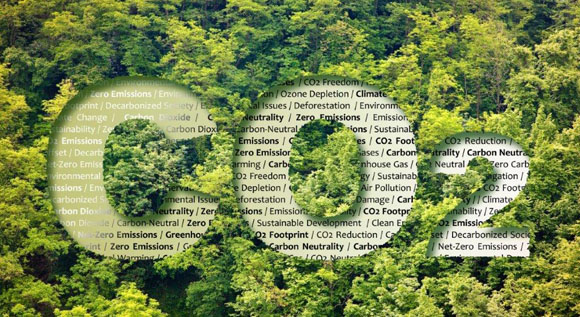IPCC report: 1.5 degree target at risk
Released in early April, the third and final part of the IPCC’s report on the impacts of climate change focuses on the posibilities for mitigating global warming. The 1.5 degree target is considered to be at risk, but achievable.
 © Adobe Stock / Francesco Scatena
© Adobe Stock / Francesco Scatena
„There isn’t much time left in order to ensure that climate action and climate adaptation can give everyone a liveable and sustainable future.“ This is the conclusion of the Intergovernmental Panel on Climate Change (IPCC) in the second part of its current report, which was published at the end of February 2022. The report assesses the effects of the climate crisis, points to a number of already irreversible impacts and highlights the need for drastic action to reduce global emissions.
The third part of the report, which was released in early April, covers the political, economic and technological possibilities to curb climate change. The sixth of its kind published by the IPCC, the report calls for a massive and far-reaching global structural transition. Real and systemic transformation is needed, it says.
Global emissions must start dropping in three years’ time at the latest
Although it has been commonly accepted for a long time that reducing GHG emissions is essential to curbing climate change, they have, tragically, never stopped rising. Regrettably, despite a deceleration in the increase of emissions and a temporary slowdown during the COVID-19 pandemic, they have recently reached an all-time high. Globally speaking, the poorest bear the brunt of the impact caused by climate change, even though others are responsible for it: according to the IPCC report, the wealthiest 10% of the global population are causing between 34% and 45% of all GHG emissions.
In order to be able to limit global warming to a maximum of 1.5 degrees Celsius, global carbon dioxide emissions will have to start dropping in three years’ time at the latest, and by 2030 they will have to fall by as much as 48% compared to 2019 levels. According to the report, the year 2050 should be viewed as a „deadline“ for a carbon-neutral world. By that date, the authors say, everyone on the planet will have to be moving around, heating and cooling their homes, and feeding themselves without causing any CO2 emissions.
Climate action will pay off in the long term
It is still possible, the paper argues, for people to counteract global warming by changing their patterns of behaviour and accepting the need for genuine transformation. In certain areas, emissions could be reduced by as much as 70%. In fact, it would even be possible to halve global emissions by 2030. The IPCC has even more good news: throughout the world, the energy transition has generally become significantly cheaper. Quick and resolute climate action may be costly, but in the long run it will pay off – also economically – while delivering rapid improvements.
The IPCC report is compiled every eight years or so by the Intergovernmental Panel on Climate Change (IPCC). The IPCC is part of the United Nations. The first part of the current report was released in August 2021, addressing the science underlying climate change. The publication of a summary of the first three volumes is scheduled for September.

